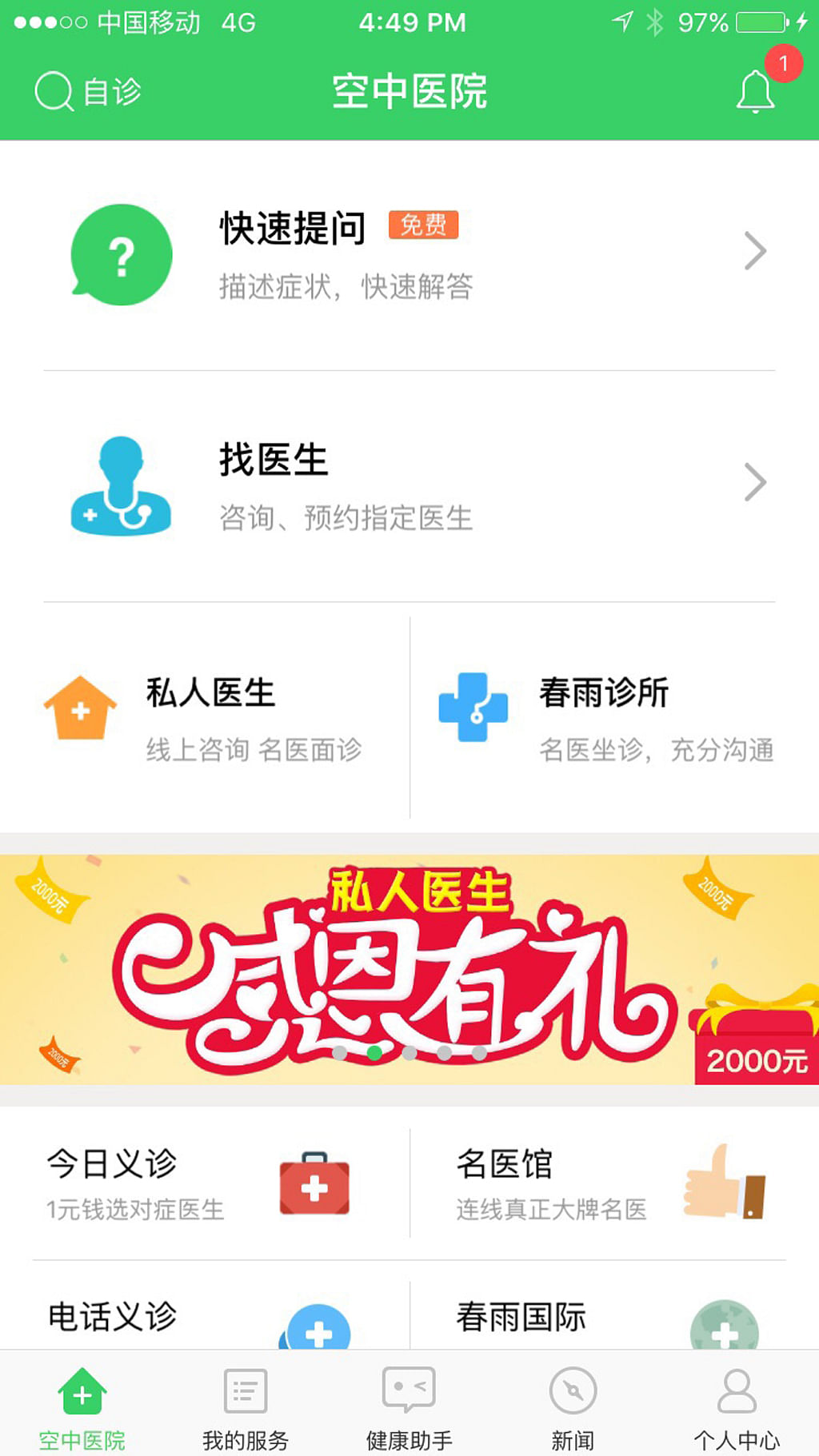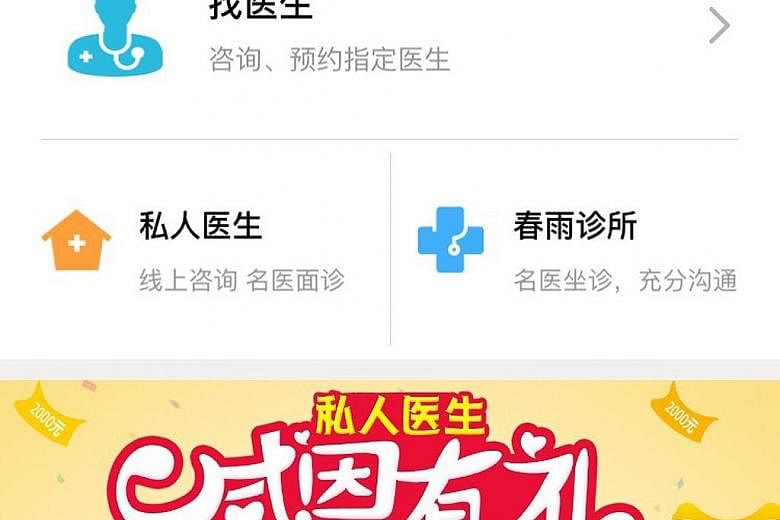After enduring days of intense back pain that made it difficult for her to walk, Inner Mongolian native Chen Hailing decided that it was time to get a professional opinion from a doctor - on her smartphone.
Using the online health app Haodaifu, which means Good Physician in Mandarin, she scoured for renowned specialists in the field while seeking advice from fellow patients on its forums.
"Eventually, after some research, I settled on a doctor in Beijing and decided to set up a phone consultation with him. It took about 10 minutes and cost 100 yuan (S$22)," Ms Chen, 35, told The Straits Times.
"He said my condition seemed serious and might be a slipped disc. After talking with a few more doctors online, I decided it was necessary to go to Beijing for a more thorough check despite the costs," she said.
With an overburdened public health system that often results in patients waiting for hours at hospitals just for a short consultation, a rising number of Chinese are turning to technology for more effective access to the country's healthcare system. Apps such as Chunyu Yisheng and Haodaifu, that allow patients to connect remotely with doctors to discuss their ailments, have mushroomed in the past year with the former even raising US$50 million (S$70.4 million) from investors, including Singapore's Temasek Holdings, in August last year.
Indeed, Beijing also seems keen for this digital revolution to take off. Last month, China's health authority announced its tie-up with Chunyu to launch an app-based diabetic management programme.
The app monitors patients in real time and provides follow-up services, in what experts say is a sign of Beijing's growing support for an innovative model of medical service delivery that could shake up traditional medical treatment.
Already, the number of mobile health service users has climbed to 90 million as at April this year, said a Sohu news portal report. Separately, Chunyu also revealed in February that it has 58 million users who can connect with 100,000 doctors.
The way such apps work is simple. On Chunyu, for instance, asking questions on forums is free. For a longer phone consultation or in-person visits with a doctor of their choice, users must pay, and Chunyu splits this fee with doctors.
The sector's revenue is rapidly growing. China's mobile health market is expected to hit 12.5 billion yuan by 2017, up from 2.4 billion yuan in 2013, according to a local pharmaceutical association.

But healthcare experts caution that online consultations cannot replace face-to-face treatment. Rather, they are meant to resolve minor illnesses and help people avoid a misdiagnosis of their symptoms.
China's Health Ministry, thus, allows mobile health providers to offer only consulting services, not treat patients or offer prescriptions.
Beijing-based civil servant Ling Qiao, 40, who used the app Kangda Yuzhen when her seven- month-old son caught a fever last month, told The Straits Times that the doctor advised her to keep her baby under observation as his temperature was not very high.
"Over the app, doctors are not incentivised to prescribe more medicine than needed and so I feel they are more objective in their opinion," she added. "In the end, my son recovered and I was saved the hassle of going to the hospital."
But while the potential for growth is huge, experts caution that the flood of new entrants and capital into the market might signal overheating. Policy barriers such as restraints on accessing medical data of public hospitals also impede the development of mobile health.
Dr Kendall Ho, an eHealth expert at the University of British Columbia, said Beijing's regulation of mobile health will be a key factor in influencing the market's direction.
Industry risks include the sector "developing too fast and too far ahead" of the medical industry, which will limit the use of mobile health technologies by health professionals and, in turn, their utility to patients, he said.
"There is currently great enthusiasm in mobile health, and if done well, this surge can meet healthcare needs," Dr Ho added. "If not, however, this can be seen as an overheating that will lead to a future crash."

